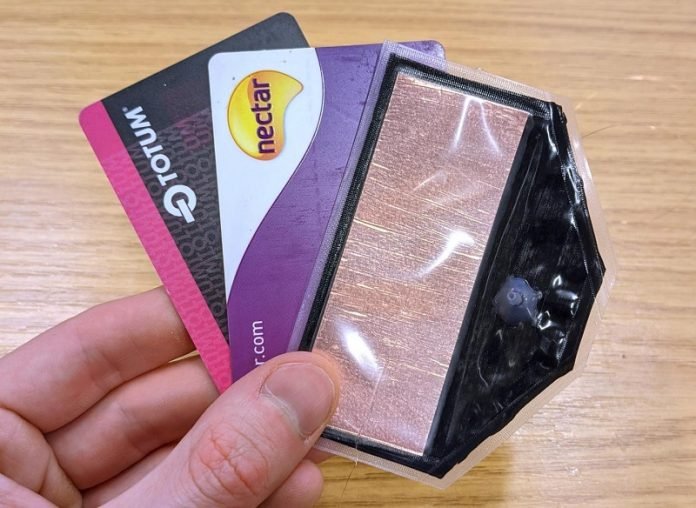
Robotic clothing that is entirely soft and could help people to move more easily is a step closer to reality thanks to the development of a new flexible and lightweight power system for soft robotics.
The discovery by a team at the University of Bristol could pave the way for wearable assist devices for people with disabilities and people suffering from age-related muscle degeneration.
The study is published in Science Robotics.
Soft robots are made from compliant materials that can stretch and twist.
These materials can be made into artificial muscles that contract when air is pumped into them.
The softness of these muscles makes then suited to powering assistive clothing. Until now, however, these pneumatic artificial muscles have been powered by conventional electromagnetic (motor-driven) pumps, which are bulky, noisy, complex and expensive.
Researchers from Bristol’s SoftLab and Bristol Robotics Laboratory led by Jonathan Rossiter, Professor of Robotics, have successfully demonstrated a new electro-pneumatic pump that is soft, bendable, low-cost and easy to make.
In the paper the team describe how the new credit card-sized soft pump can power pneumatic bubble artificial muscles and pump fluids. The team also outline their next steps to make power clothing a reality.
Professor Rossiter from Department of Engineering Mathematics at Bristol and Head of the Soft Robotics group at BRL, said: “The lives of thousands of people with mobility issues could be transformed with this new technology.
The new pumps are an important development that will help us deliver comfortable, and stylish, power-assisting clothing.
“We are now working to make the electro-pneumatic pumps smaller and more efficient and are actively seeking partners to commercialise the technologies.”



